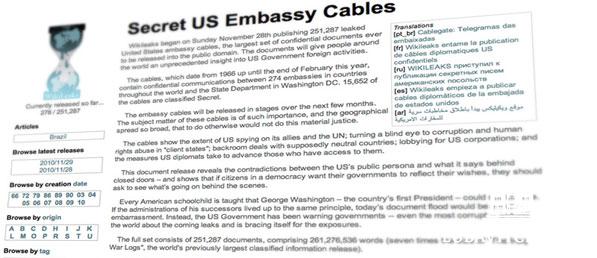Nearly 1,000 years ago, a rabbi instituted a revolutionary ban that might have prevented the whole WikiLeaks shake up.
In medieval times, when Jewish writers wanted to keep documents private, they’d seal their scrolls with the acronym “B’ChaDRaG,” which meant “under the excommunication ban of Rabbeinu Gershom.” Rabbeinu Gershom, who lived in Maintz, Germany, ordered anyone who opened and read another’s mail to be shunned. Excommunication meant exclusion from community and synagogue life, business deals. Even small niceties, like greetings on the street, were verboten for anyone who violated the ban. With this change Rabbeinu Gershom, whose ban on Jewish polygamy remains in force today, broadened the Jewish definition of privacy.
When Rabbi Boruch Oberlander, director of Chabad of Budapest, considers the ongoing WikiLeaks scandal from a Jewish perspective, he thinks of Rabbeinu Gershom. “We are not allowed to disclose another person’s secrets,” he said. Rabbi Oberlander teaches a course on ethics to law students at Hungary University. They’re surprised by Judaism’s circumscribed right to know. In an age that proclaims “knowledge is power,” “information wants to be free,” it’s jolting to hear that Judaism’s position: Personal information is not a commodity to be passed along at will.
Once the seal was broken on the diplomatic cables, much of the contents were revealed to be gossipy in nature. There are descriptions of bacchanalian Russian weddings, lavish gifts exchanges, and the contents of medicine cabinets. From a Jewish perspective, “speaking about someone for a non-substantive purpose is not allowed,” said Rabbi Alexander Namdar, Chabad’s representative in Goteborg, Sweden. He pointed out that there comes a time when the negative must be said. Where the gossip isn’t just idle, but necessary. “If your friend’s daughter is about to start dating a serial killer, then it’s time to speak up. For something of substance, then those who should know, should be told.”
WikiLeaks indiscriminate dumping of information on the public at large continues to have repercussions. Will Namibia continue to allows Chinese immigration in exchange for loan forgiveness? Can Pakistan go on permitting U.S. drones to use its airspace? According to the London Daily Telegraph, Taliban leaders read WikiLeaks list of information, and now their courts are bent on punishing those who helped U.S. interests.
Armchair news junkies and pundits have been speculating what the final fallout from WikiLeaks will be. For most of us, who are not decision makers in the realm of international intrigue, the message of WikiLeaks is very personal. Despite the emphasis Judaism gives to privacy and to refraining from gossip, the world at large prefers to rip open the envelope, to expose rather than to protect.
The only way to protect ourselves from embarrassment is to act in private as we would in public. To be honest so that we don’t have to remember our cover stories. If that isn’t enough, it’s worthwhile to remember the proverb from Pirkei Avot, 2:4: Do not speak what should not be heard, for it will ultimately be heard . . .”

Be the first to write a comment.